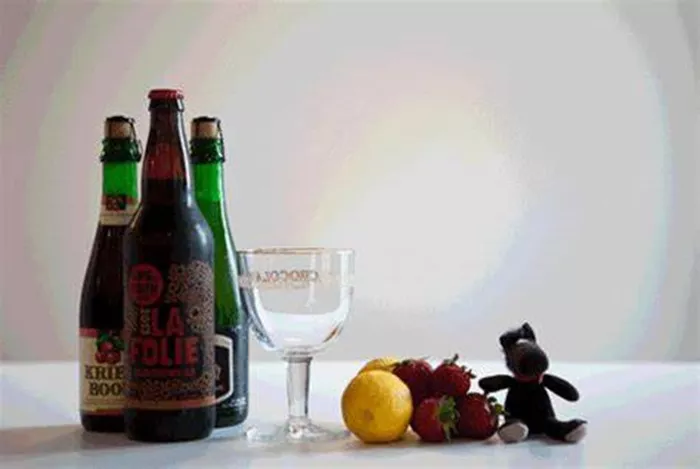Zero alcohol beer has become increasingly popular in recent years as people look for alternatives to traditional alcoholic beverages. In this comprehensive guide, we will explore how zero alcohol beer is made, from the initial ingredients to the final product.
What is Zero Alcohol Beer?
Zero alcohol beer, also known as non-alcoholic beer or NA beer, contains less than 0.5% alcohol by volume.
It is designed to provide the taste and experience of beer without the intoxicating effects of alcohol.
The Ingredients of Zero Alcohol Beer
1. Water:
The main ingredient in beer, water plays a crucial role in the brewing process. High-quality water is essential for a good-tasting zero alcohol beer.
2. Malt:
Malted grains, such as barley or wheat, provide the sugars that are fermented to produce alcohol. In zero alcohol beer, special types of malt are used that have lower sugar content or are processed differently to reduce alcohol production.
3. Hops:
Hops add bitterness, flavor, and aroma to beer. Different varieties of hops are used in zero alcohol beer to create a unique taste profile.
4. Yeast:
Yeast is responsible for fermenting the sugars in the malt to produce alcohol. In the production of zero alcohol beer, special strains of yeast are used that are less efficient at producing alcohol or are removed early in the fermentation process.
The Brewing Process
1. Mashing:
The first step in brewing beer is mashing, where the malted grains are mixed with hot water to convert the starches into sugars. In zero alcohol beer production, the mashing process may be adjusted to use less malt or different types of malt to reduce sugar content.
2. Lautering:
After mashing, the liquid wort is separated from the spent grains in a process called lautering. This step is important for removing any impurities and ensuring a clear wort.
3. Boiling:
The wort is then boiled with hops to add bitterness, flavor, and aroma. The boiling process also helps to sterilize the wort and coagulate proteins.
4. Fermentation:
In traditional beer brewing, fermentation is the process where yeast converts the sugars in the wort into alcohol and carbon dioxide. In zero alcohol beer production, fermentation is either limited or completely stopped to keep alcohol levels low. This can be achieved by using special yeast strains, controlling fermentation temperature and time, or removing the yeast before significant alcohol is produced.
5. Filtration and Stabilization:
After fermentation, the beer is filtered to remove any remaining yeast, proteins, and other impurities. Stabilization processes may also be used to ensure the beer remains clear and stable over time.
6. De-alcoholization:
There are several methods used to remove alcohol from beer and create zero alcohol beer. These methods include vacuum distillation, reverse osmosis, and membrane filtration.
7. Vacuum Distillation:
This method involves heating the beer to a low temperature and then reducing the pressure to cause the alcohol to evaporate. The evaporated alcohol is then condensed and removed, leaving behind a low-alcohol or zero alcohol beer.
8. Reverse Osmosis:
Reverse osmosis uses a semi-permeable membrane to separate the alcohol and other small molecules from the beer. The beer is passed through the membrane under pressure, and the alcohol and other small molecules are removed, while the larger molecules such as water, sugars, and flavors remain.
9. Membrane Filtration:
Membrane filtration uses a specialized filter to separate the alcohol from the beer. The filter has pores that are small enough to allow the passage of water, sugars, and flavors, but too small for the alcohol to pass through.
Flavor and Aroma Enhancement
Since zero alcohol beer has lower alcohol content, it may lack some of the flavor and aroma characteristics of traditional beer. To enhance the taste and aroma of zero alcohol beer, brewers may use various techniques such as adding natural flavors, using different hop varieties, or adjusting the brewing process.
Some zero alcohol beers are also flavored with fruits, spices, or other ingredients to create unique taste profiles.
Packaging and Storage
Zero alcohol beer is typically packaged in cans, bottles, or kegs, just like traditional beer. However, special care may be taken to ensure that the beer remains fresh and stable during storage.
Zero alcohol beer should be stored in a cool, dark place to prevent spoilage and maintain its flavor and quality.
Health Benefits of Zero Alcohol Beer
Zero alcohol beer can be a healthier alternative to traditional beer, as it contains less alcohol and fewer calories.
It can also be a good option for people who are abstaining from alcohol for health reasons, such as pregnancy, medication use, or alcohol addiction recovery.
Some studies have suggested that moderate consumption of zero alcohol beer may have certain health benefits, such as reducing the risk of heart disease and improving bone health.
See Also: Which Beer Has The Least Calories And Carbs?
Popular Brands of Zero Alcohol Beer
There are many brands of zero alcohol beer available on the market, each with its own unique taste and characteristics.
Some popular brands include [brand names]. These brands offer a variety of flavors and styles to suit different tastes.
Conclusion
Zero alcohol beer is made through a complex process that involves careful selection of ingredients, adjustments to the brewing process, and de-alcoholization methods. The result is a beverage that provides the taste and experience of beer without the intoxicating effects of alcohol. Whether you are looking for a healthier alternative to traditional beer or simply want to enjoy a refreshing beverage without alcohol, zero alcohol beer can be a great choice.
You might be interested


